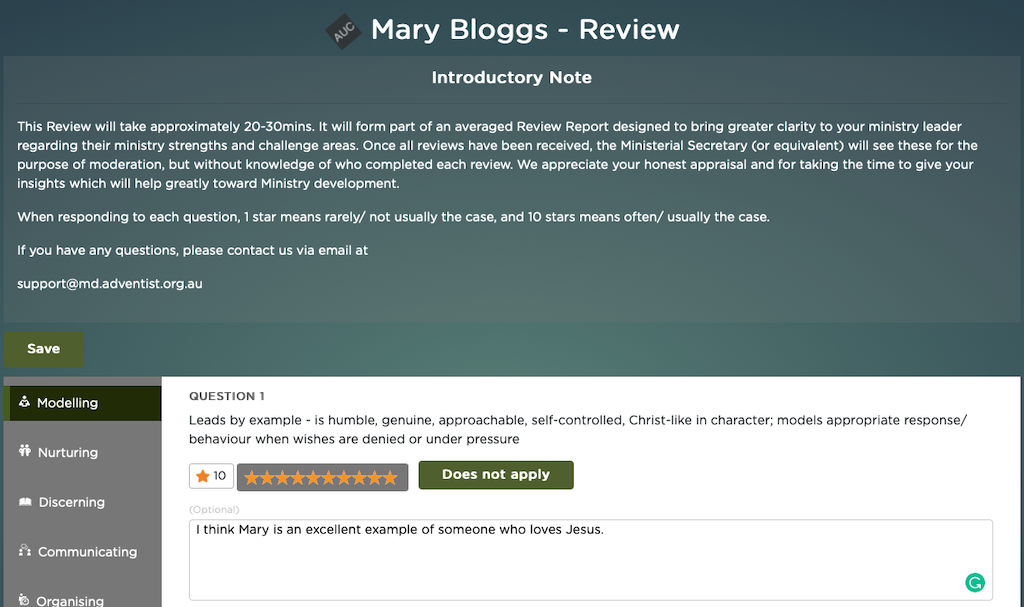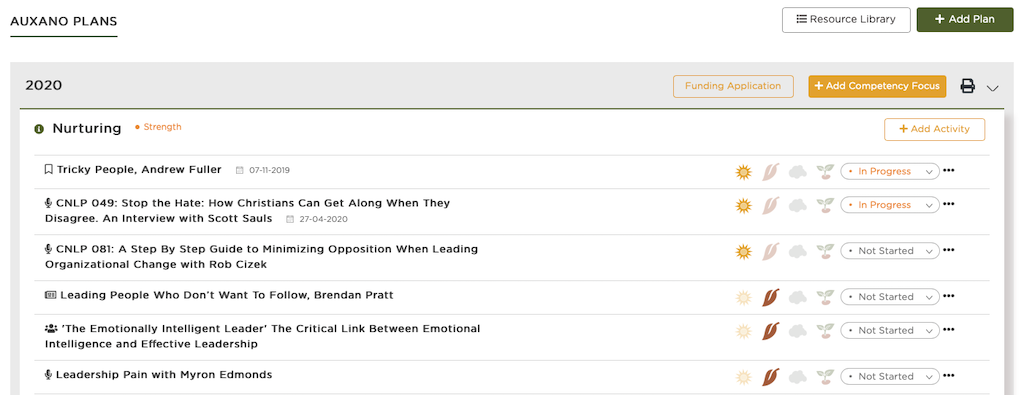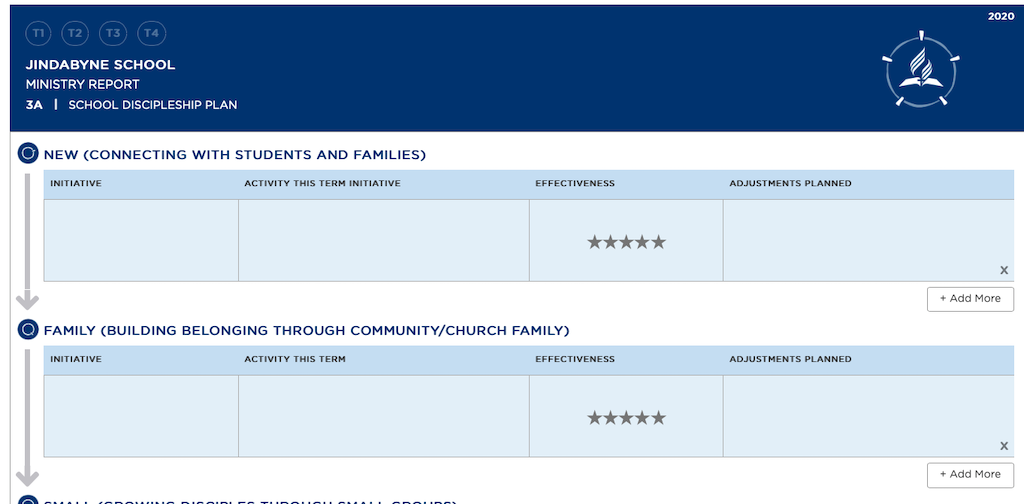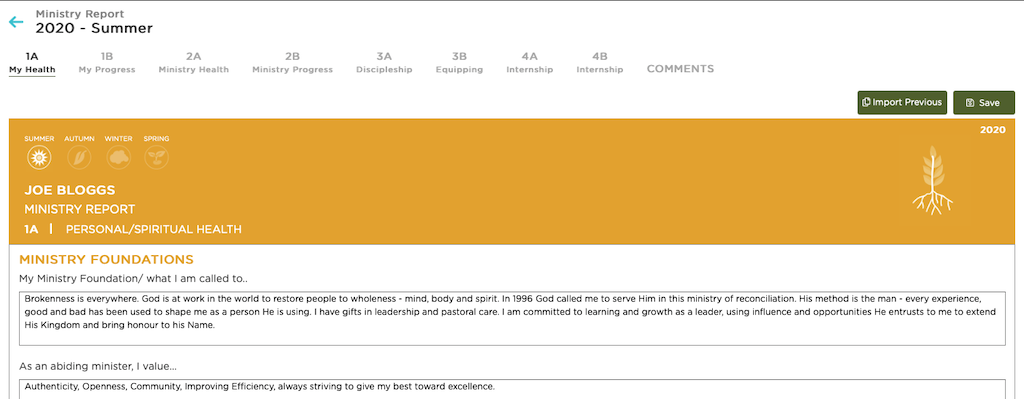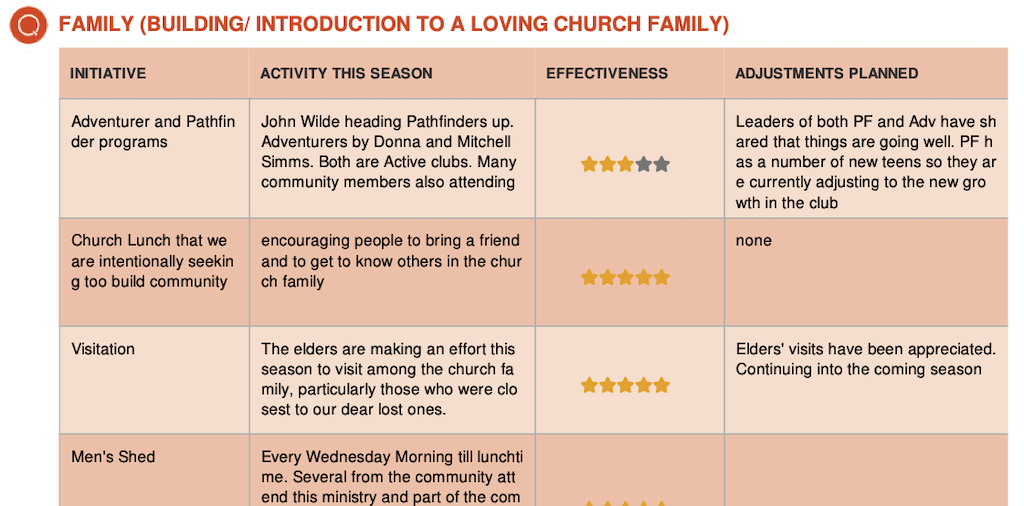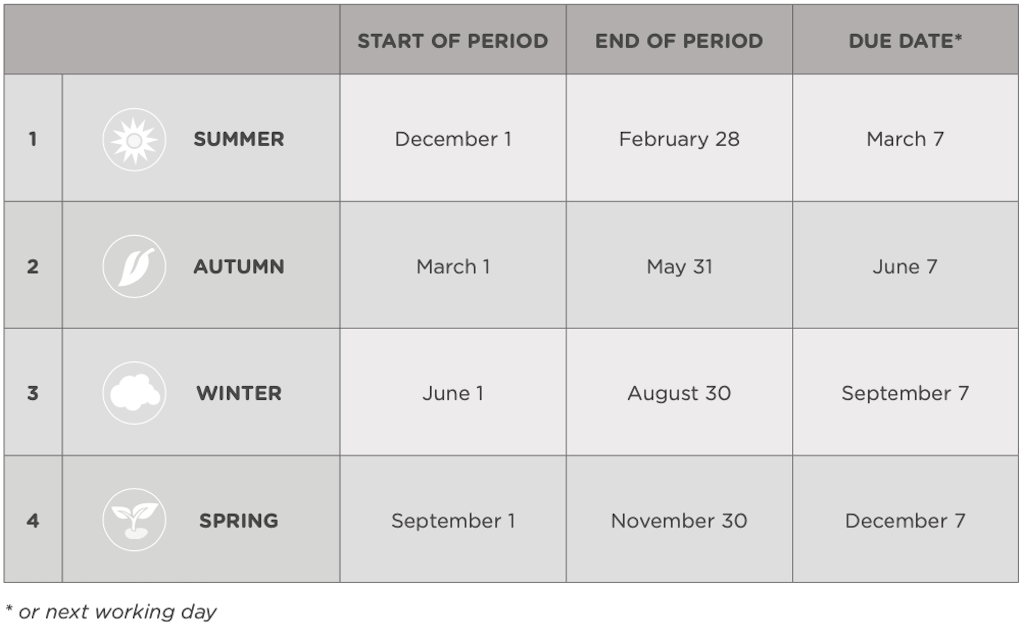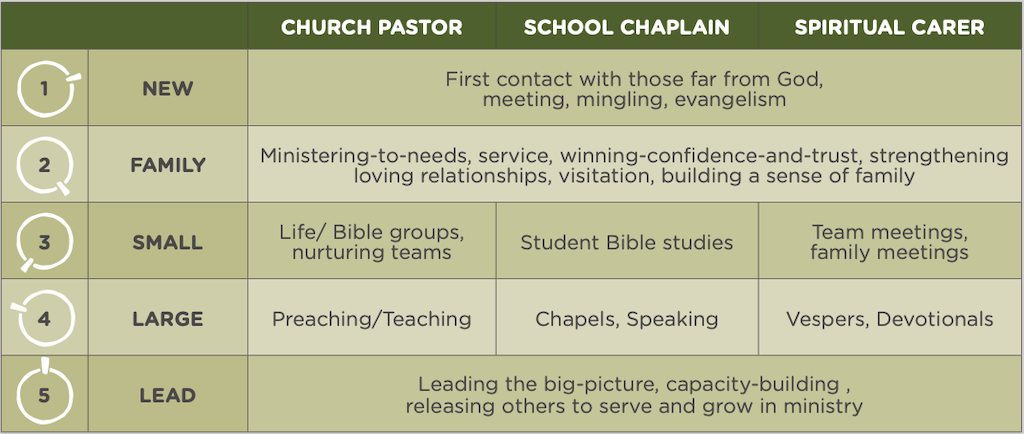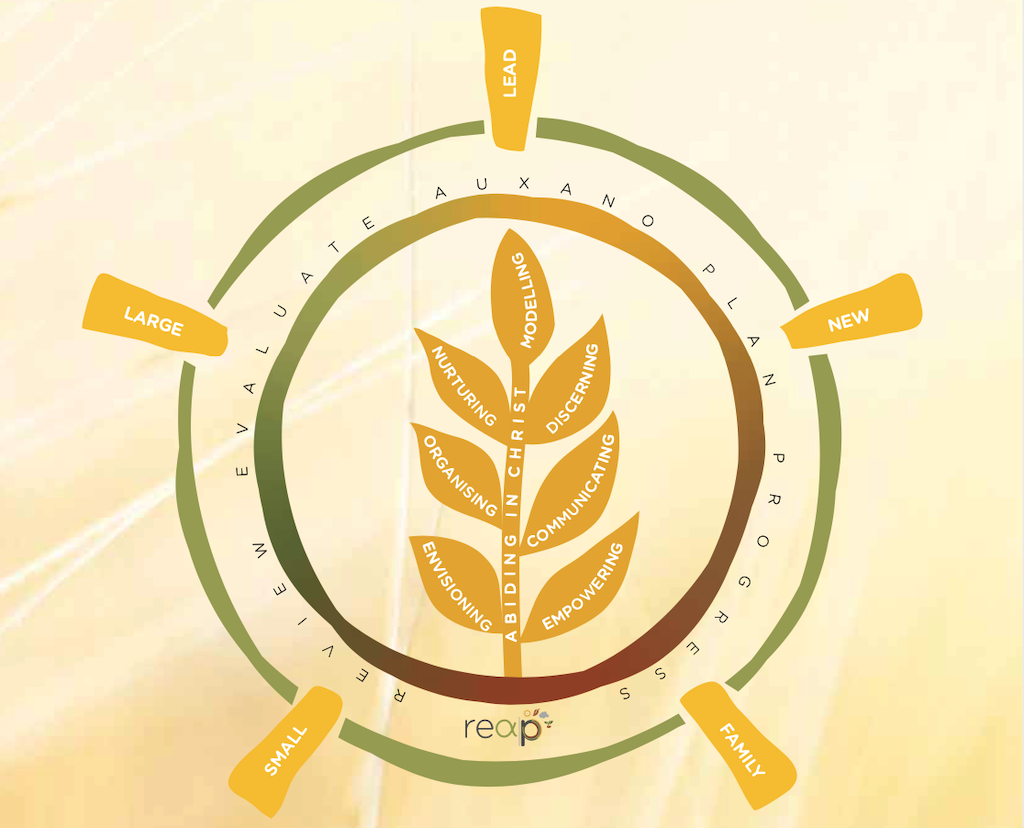Below is a brief summary of the Ministry Leaders’ Handbook. The full text can be found at https://aucministerial.org/profile
WHAT IF
3-WAY SUPPORT
PERSONAL
PEERS
PROFESSIONAL
REAP CYCLE
MINISTRY REPORTS
CMFs & Competencies
WHAT IF..
We serve in a variety of contexts and Locations. As Ministry Leaders, we are in essence a movement of ‘spiritual farmers’, cultivating environments where growth can take place. Central to the idea of nurturing and helping others to grow, is the need for each of us alos to be nurtured and growing. In the past, as a church we have often sent workers out into the field with an unexpressed understanding that ‘if you don’t hear from us, all is well’. However, years of countless personal stories, research studies and honest reflection attest to the fact that ministry does not thrive in isolation (Figure 1).
FIGURE 1.
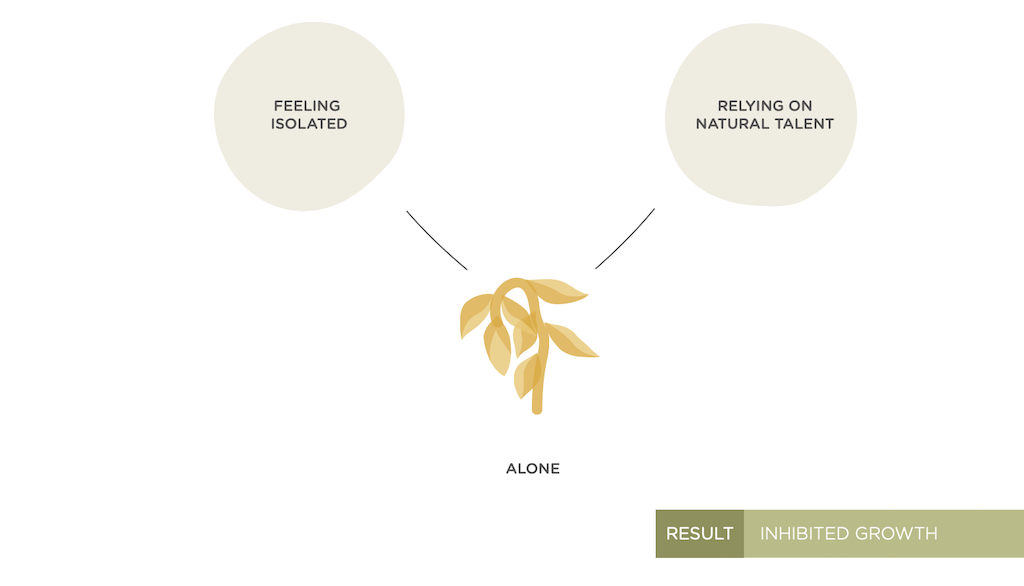
Much strength and support can be gained when we share at all levels of ministry. While our circumstances may vary, we are united in a divine calling to the same task: to ‘be’ and ‘grow’ disciples who thrive.
What if…
What if we could support you and the ministry God has called you to in more tangible ways?
What if we could provide a range of tools designed to empower your God-given strengths in greater measure?
What if we could celebrate with you moments that have deeply shaped you as a leader?
What if we could share with you new ways of cultivating your own spiritual life – the grand essential for all disciples?
What if we could encourage you in the development of a spiritual cultivation plan through greater purpose-driven resourcing?
What if our Ministry Leaders really experienced intentional 3-way support: personally, from peers and professionally in a way that helped them serve and grow?
A VISION FOR 3-WAY SUPPORT
Recognising the numerous and varied challenges faced by our ministers in the field, early in 2014, the AUC Ministerial Association explored what it would take to help our ministry leaders develop their capacity in order to fulfil their God-given calling. By the end of 2014, the Ministerial Secretaries of the Australian Union Conference, building on excellent thinking and resources already in place, committed to further work in this area. This coincided with the development
in South Queensland since 2011, of a framework for affirming pastors in their personal growth and professional ministry experience. A natural alignment between the objectives of both the South Queensland Conference and the Australian Union Conference was recognised. The Ministry Development [MD] framework was born.
Since that time, the MD framework has continued to adapt and grow as a form of scaffolded support for effective ministry development in response to the challenges we face. It represents the thinking and experience of numerous pastors and educators engaged both in the field and in administration, and has benefited from the vast wealth of experience of several notable experts in their fields. Above all, we believe the MD journey that has resulted bears the mark of God’s favour and blessing – and we pray that it will always be used to that end, serving His grand purposes for His church.
Tending a unique, local growing environment requires tools and skills. The MD framework offers you support that we hope and pray can help you as you respond to God’s call where you are. To this end, as we pursue a new vision for growth within a culture of authentic openness and encouragement, we are committed to three-way support for you in your ministry (shown in Figure 2).
FIGURE 2.
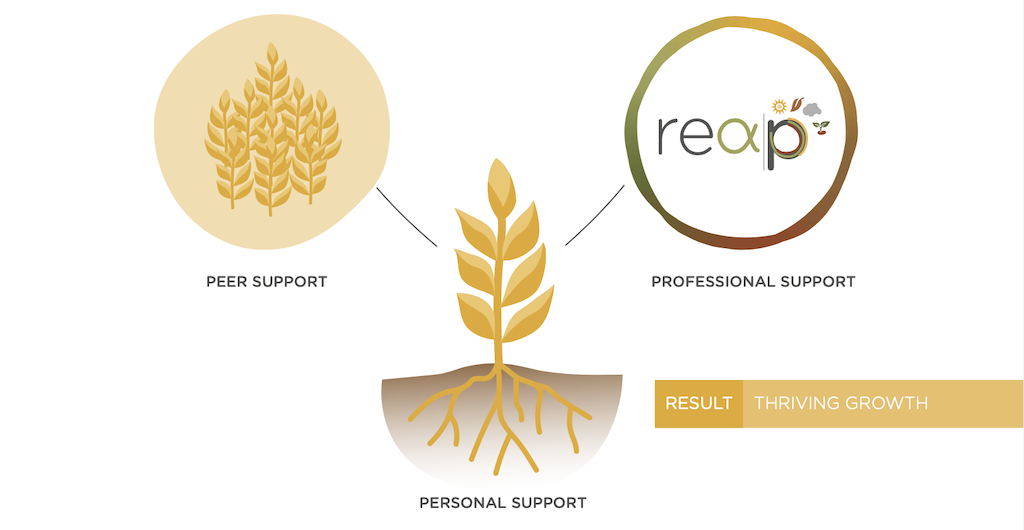
1. PERSONAL SUPPORT through: Abiding Growth
[Tool: An Accountability Partner]
2. PEER SUPPORT through:
Deepening collegial relationships
[Tools: Ministerial cluster groups, mentors]
3. PROFESSIONAL SUPPORT through:
Intentional Ministry Development
[Tools: The cycle (Review / Evaluation Conversation / Auxano Plan / Progress Ministry Reports (MR) – reflecting on Auxano Plan progress Provision of ongoing support and feedback from Ministerial Secretary.
Our desire is for you, the Adventist Pastor, Chaplain or Spiritual Carer to be Spirit-filled, passionate, resourced and supported in your ministry. We seek to mirror Jesus’ ministry, where growing people, not programs was the vital work. Through authentic, respectful connections, open, generous conversations, ongoing championing and feedback, targeted resourcing and flexible support structures, we want you to thrive. We want you to feel empowered and emboldened to fulfil your calling of working with God in your own growing environment.
 PERSONAL SUPPORT
PERSONAL SUPPORT
With the driving demands and competing schedules that characterise ministry, personal physical health and wellbeing also invites special attention. ‘Balance’ and ‘health’ are concepts that are slippery and difficult to sustain. Yet prioritising these are vital to ministry. Our spouses, children and friends are a significant part of our lives. Our love for them drives us to protect these valued relationships. Learning to love well is integral to the life of the disciple. And recognising we need their love and support is a healthy acknowledgement.
They play a significant role in nurturing our wellbeing. With so much competing for attention, how easy it is for the important to bow to the urgent, leaving us doing ministry ‘alone’ rather than opening ourselves to the encouragement and support our families can provide. Losing sight of what is most important, we can easily live life attending primarily to that urgent deadline. Within the MD framework, personal health and balance is a priority. You simply can’t give from a vacuum – be it spiritual or emotional.

AN ACCOUNTABILITY PARTNER (AP)
With both personal spiritual abiding and personal thriving as foundational goals, MD invites you to ask an honest friend to serve as an Accountability Partner, who can not only be a safe place for you to talk openly about how things really are, but also someone who, in the spirit of friendship and your best interest, will challenge you along the way. Because the fracture of human insecurities or blind spots can mask or distort reality, this person can be a source of objectivity and accountability for you in your spiritual and personal journey. To this end, your Accountability Partner (AP) can greatly assist you in:
1. Checking in about your own spiritual connection with God,
2. Helping you be honest with yourself,
3. Offering a voice of accountability to not neglect the important relationships that will ensure your own personal and relational wellbeing and enhance ministry vitality.
Within the MD framework, you will choose such a partner and meet at least four times within a year (more ideally: weekly/monthly). In the interest of authentic process, before you meet, take the time to prepare a range of questions you believe will help protect you and the integrity of your ministry. Give these to your AP. Sample questions are provided to help you with this selection process.
This process can become something truly transformational if it is a mutual accountability partner process.
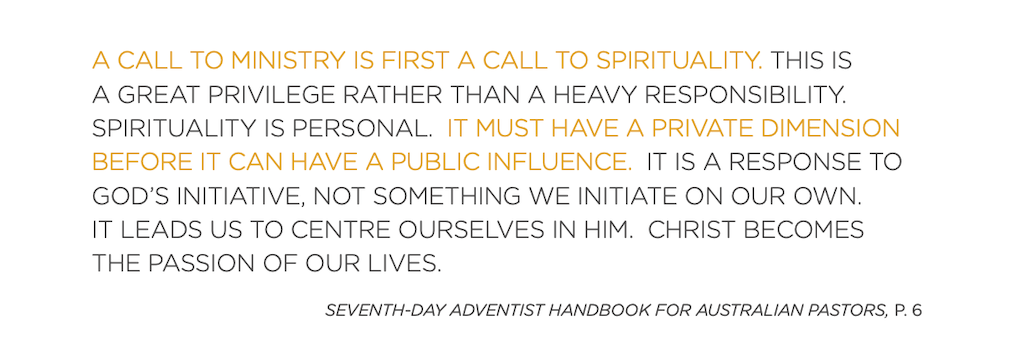
PEER SUPPORT
Within the MD plan, a second circle of support exists. It is offered from your ministry peers.
Collegial friendship and support are valued within the MD framework. These priorities
are enabled through a range of events and connection opportunities that have team- building as a specific goal. These are largely organised by the Conference Ministerial Secretary. Building friendship and trust across a team comes neither swiftly or by accident, but when you come to describe your colleagues as a team you feel connected to, when you look forward to getting together, and leave feeling invigorated, inspired, refreshed and resourced, a culture of trust, support and encouragement can be cultivated.
CLUSTER GROUPS
Another peer-support initiative comes in the form of ministerial cluster group connections. These serve to strengthen bonds between colleagues across differing ministry settings, cultural back- grounds, ages and levels of experience and proficiency. Well-led cluster groups are valuable environments for further strengthening a culture of belonging, mutual support and encourage- ment. To this end, they may be characterised by the inclusion of a communal meal. They exist to serve four primary functions:
- Authentic spiritual connection and reflection in a relaxed context
- Sharing and prayer for each other
- Conference/District updates/planning (e.g. updates on evangelism, regional days etc.)
- Shared resourcing. Training is not the purpose of these cluster group gatherings. It is intended that they be driven by process rather than content so collegial support can remain the preeminent goal.
CONFERENCE MINISTERS’ MEETINGS
Ministers’ meetings provide further opportunities for a strengthened sense of belonging, encouragement and inspiration for you and
your colleagues. They also provide opportunity for a break from the demands of ministry. They aim to fulfil all of the purposes of the cluster meetings at a deeper lever of engagement. Ministers’ Meetings also provide an opportunity to celebrate ministry high points and carry potential for leadership training, biblical growth and prayer for each other.
OTHER MINISTRY TEAM EVENTS
From time-to-time, Conferences may plan other opportunities for peer support for the whole team, or subsets of the team. e.g. Camp setup and demolition, special training events, meetings organised for lay members etc. Making use of
the potential that these opportunities provide for you as a team to come together, be together, eat together, and pray together, cannot be underestimated. Every connection can serve to encourage and support you in ministry.
PROFESSIONAL SUPPORT
The final layer of assistance offered to you in the interest of a thriving ministry lies in the area of Professional Support – a vital key for supported ministry.
SUPPORTIVE ADMINSTRATION
Under MD, Admin is better enabled to understand and affirm you and your ministry through the annual REAP cycle (explained under the REAP cycle tab). The REAP cycle is designed to support the conversations that will help you identify your strengths in ministry, and any challenge areas in order to help you to grow as a person in your home, and as a ministers in your ministry. MD also ensures that there is clarity around ministry progression and expectations, and 2-way accountability for key conversations protecting you and your admin team.
YOUR MINISTERIAL SECRETARY
Pastoral Care
We pray that the personal interest of your Ministerial Secretary in your joys and sorrows becomes a source of strength to you as you minister. We hope this relationship helps you develop trust, professional confidence and a sense of belonging for you and your family, knowing you are part of an incredible, committed team. A significant part of your Ministerial Secretary’s role is to maintain regular contact with you, visiting from time-to time, actively listening to your voice and building a connection. Their communication with the ministry team in sharing joys and sad news, prayer needs and reminders (e.g. via SMS, email) is an excellent way to help you take a personal interest in your colleagues.
Communication, Advocacy and Progression
Assisting you with various personal needs as they arise (employment-related questions etc.), and serving as a supportive advocate when requested are other important roles your Ministerial Secretary plays. Facilitation and affirmation of your progression through the markers of ministry (Induction/ Internship/ Licensed Ministry/ Ordination/ Retirement etc.) all exist to serve you, the minister with respect and transparency.
Ongoing Coaching in Ministry Report Feedback
As your advocate rather than your employer, your Ministerial Secretary can also offer wisdom, experience and provide feedback about your ministry. They are there to affirm your strengths, offer scaffolded help as you navigate through your challenges, and provide ongoing coaching feedback.
Coaching via Seasonal Ministry Reports
Seasonal Ministry Reports (explored under the MINISTRY REPORTS tab) are designed to be a source of rich coaching conversations as your Ministerial Secretary observes and affirms your leadership initiatives. Their role in these conversations seeks to support and enhance your ministry.
THE REAP CYCLE
[REVIEW, EVALUATION, AUXANO PLAN AND PROGRESS]
 The importance of humility and self-awareness in providing a rich environment for personal growth so that your ministry can flourish cannot be overstated. With greater self-awareness comes a deeper understanding of self – which in itself is can be powerfully affirming.
The importance of humility and self-awareness in providing a rich environment for personal growth so that your ministry can flourish cannot be overstated. With greater self-awareness comes a deeper understanding of self – which in itself is can be powerfully affirming.
It also allows you to honestly recognise perceived strengths and challenges. An appreciative inquiry into these strengths and challenges can further affirm and empower you, the minister, to grow your ministry strengths.
REVIEW
The first phase of involves a Review, which allows you to gain quality feedback from those who serve alongside you. This Review is facilitated through an online form that is sent to those you have chosen to participate. Their feedback is compiled into an averaged Competency Review Report which reveals key data relating to both the seven Ministry Competencies and the Core Ministry Functions. This information is then moderated by the Ministerial Secretary to eliminate bias and repetition before the Competency Review Report is shared. A sample invitation to Review is shown in Figure 3 below:
FIGURE 3.
EVALUATION
This Report is then discussed between you and a member of your Conference Administration team. This is a healthy opportunity for transparent and supportive affirmation and dialogue around growth opportunities currently relevant in your ministry. It allows your leader to affirm strength areas and identify any area/s of ministry that could be enriched. Summary points from this conversation are noted and signed by all present at the end of this conversation, and a copy of this record is given both to you, the minister, and the Ministerial Secretary. In this way there can be clarity for everyone involved. This can be used to guide you in the creation of an Auxano Plan.
“As iron sharpens iron, so a friend sharpens a friend.” PROVERBS 27:17 (NLT)
PLEASE NOTE THAT REVIEWS AND EVALUATIONS ARE NOT YET AVAILABLE IN ALL CONFERENCES FOR ALL MINISTRY LEADERS.

AUXANO PLAN
Auxano, represented by the Greek letter Alpha α captures the next phase in your personal ministry development. AUXANO means ‘to cause to grow’. This plan is developed with the help of the Ministry Competencies.
The MD Portal includes the Auxano Planning Tool that can help you tailor a growth plan to assist you in enhancing both challenge areas and further develop strength areas.
Using this online planning tool, you can search and select valuable books, videos and courses to help you create a plan to guide your growth in the coming seasons. This can be edited and added to throughout the year. In addition, this online tool also allows you to search for suitable skilled, experienced peer-mentors in any given competency area, thus opening a new chapter in support, allowing you to connect with others in ministry who can assist your growth in a tailored way. A snapshot from an Auxano plan is shown in Figure 4 below.
FIGURE 4.
PROGRESS – Seasonal Ministry Reports
Seasonal Ministry Reports are designed to be a source of rich coaching conversations as your Ministerial Secretary observes and affirms your leadership initiatives. Their role in these conversations seeks to support and enhance your ministry.
The continual growth and progress that emerges as you move through this Auxano Plan is then simply reported as part of a seasonal Ministry Report (MR). The submission of this report constitutes the final stage in the cycle. These are further explained under the REPORTS tab. A snapshot from a Chaplain’s Ministry Report (Part 3A) is shown in Figure 5 below.
FIGURE 5.
SEASONAL MINISTRY REPORTS
A key support in your leadership Seasonal Ministry Reports help you to lead your team to fulfil God’s vision for your location. These are designed to be living leadership documents, updated by you and your team thoughout each season, submitting a snapshot to the Conference at the end of Summer, Autumn, Winter and Spring and to your church at your regular Business meetings.
Seasonal Ministry Reports aim to:
• Allow the ministry leader to lead and learn-to-lead with greater clarity – over time raising the value and capacity of ministry leadership
• Promote conversations about the leadership journey with the local church leadership team
• Simplify the process of reporting to both Conference and local church/ school/ aged care admin teams.
• Provide a record of ministry reports for the location and its journey over time.
A snapshot from Part 1 of the Ministry Report is shown below in Figure 6 below:
FIGURE 6.
Ministry Reports are designed to help both you and your leadership team reflect on the past, and look to the future in three essential areas:
i. (Part 1) MINISTER HEALTH AND PROGRESS (Completed by all Ministry Leaders)
ii. (Part 2) MINISTRY HEALTH AND PROGRESS (The most-Senior Leader (SNR) at each location completes this section, the associate can import it from SNR)
iii. (Part 3) MINISTRY DISCIPLESHIP and EMPOWERING (Associates complete this section relating to themselves and the ministries they oversee)
The reports use the Core Ministry Functions for its structure:
1. NEW – ministries that connect with new contacts, community
2. FAMILY – ministries that build belonging and a sense of family, and connect new contacts to community
3. SMALL – small group discipleship, primarily bible studies and small groups
4. LARGE – large group discipleship ie preaching, teaching, chapels, devotionals etc
5. EMPOWER – how your location is empowering people to serve in the area of their giftedness
A snapshot from a Pastor’s Ministry Report (Part 3A) is shown in Figure 7 below.
FIGURE 7.
Church and Aged Care Seasonal Ministry Reports are due a week following the end of each season as in FIGURE 8 below. School Reports are due within 2 weeks of the end of each term. Those with a combination of locations may submit their report when the latter is due.
FIGURE 8.
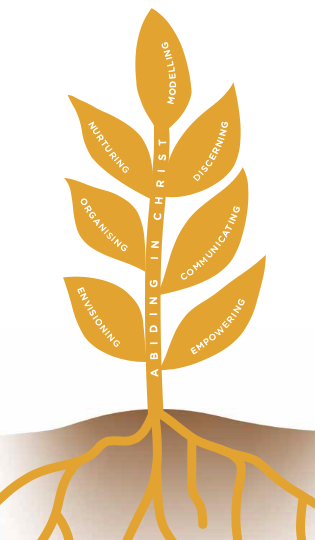 DEVELOPING COMPETENCY, GROWING EFFECTIVENESS
DEVELOPING COMPETENCY, GROWING EFFECTIVENESS
The foundation of all ministry competency is to abide in Christ. Spirit-filled, effective pastoral ministry flows as ‘fruit’ from this abiding relationship with God. This enables, among other things: a humble openness to growth through the Spirit’s leading; a prayer-dependency; a healthy picture of God; clarity about what it means to be called by Him to Adventist Pastoral Ministry; and a clear vision of God’s will for your church
Beyond this, the shape and extent of your professional growth in each of the five Core Ministry Functions will be observed and affirmed with the help of seven Ministry Competencies. Each Core Ministry Function draws on a number of competencies. The Ministry Functions are the ‘what’ of ministry, the Ministry Competencies are ‘how well’ these are expressed. If the Core Ministry Functions show us how hard we’re working, the Ministry Competencies show us how well we’re ministering. These competencies constitute the nucleus of the professional support that is offered to you in the MD framework.
While the heart of all ministry is organic and relational – working to bring healing, health and vitality in the context of the mess of human brokenness and sin – leadership competencies can and must be developed if a healthy growing environment is to result. Ellen White shares, “The secret of success is the union of divine power with human effort.”
Patriarchs and Prophets, p. 509
5 CORE MINISTRY FUNCTIONS
The five Core Ministry Functions are:
- Connecting (NEW)
- Relationship-building (FAMILY)
- Discipling through small groups (SMALL)
- Discipling through large groups (LARGE)
- Leading (LEAD)
These practices characterise your role; they are the ‘WHAT’ of your ministry – regardless of your location type (Church, School or Aged Care). As with all life practice, Jesus’ ministry modus operandi offers a perfect model for us as we serve within these functions, “Christ’s method alone will give true success in reaching the people. The Saviour mingled with men as one who desired their good. He showed His sympathy for them, ministered to their needs, and won their confidence. Then He bade them, ‘Follow Me.’” Ellen White, The Ministry of Healing, p. 139
Examples of the 5 Core Ministry Functions in different location types are shown in Figure 9 below.
FIGURE 9.
7 MINISTRY COMPETENCIES
The seven Ministry COmpetencies that undergird Core Ministry Functions are:
1. MODELLING – Authentic Self-Leadership. The growing ministry leader is genuinely open to being shaped by God, and who then seeks to minister out of the overflow of time spent with the Father. He/she is both committed to stewarding time, well-being, finances and resources, and exercises spiritually-dependent-leadership in both his/her personal life and the life of the church.
2. NURTURING – Attentive Presence. The growing ministry leader is socially and emotionally intelligent and skilled in nurturing inter-generational and interpersonal relations by attending and ‘being-in-the-moment’ with each person. He/she prioritises member visitation and honours appropriate boundaries in all interactions.
3. DISCERNING – Biblical Insight and Application. The growing ministry leader has a thorough understanding of the Bible and enjoys continual growth and learning. This results not only in the guiding of others in a biblical worldview, but also in both the study of the Bible and a reflective reading of scripture, so that transformation can take place in the life.
4. COMMUNICATING – Clear Expression. The growing ministry leader seeks to become proficient in communicating clearly and effectively in written and verbal form, across all-sized gatherings and using a range of mediums, including social media.
5. ORGANISING – Efficient Management. The growing ministry leader is able to successfully lead the operation of a local church. He/she is motivated, trustworthy, dependable, well-organized, proactive in communication and able to manage time and available resources.
6. EMPOWERING – Inspirational Equipping. The growing ministry leader proactively nurtures people in ministry. This includes identifying giftedness and a heart-for-ministry, and then empowering growth through training, equipping and encouragement as part of discipleship-driven learning.
7. ENVISIONING – Spirit-dependent Planning. The growing ministry leader will diligently and prayerfully seek God’s leading as the vision is sought, shaped and then cast. By strategic planning and practice, he/she will work with their leadership team/s to establish and achieve goals that bring aligned fulfilment of the vision over time.
THE MD LOGO – a summary of MD
The MD logo expresses the primary features of the Ministry Development process, and is shown in Figure 10 below.
You, the Ministry leader, are represented by the wheat, ever-growing and developing yourself, and serving to grow a people toward God’s harvest.
Though the root system of a wheat plant is hidden in the soil, unseen, it is the source of life that nourishes and fulfils
all that the plant is called to be and do. So too, your ABIDING relationship with Christ is the unseen priority that gives life to all that you are and all that you do as a ministry leader. The stalk represents this abiding walk with Christ, sustaining your ministry competencies.
The seven Ministry Competencies are shown as grains growing out of the stalk. These are integral to who you are as
you serve in your ministry context. Their cultivation shapes your growth. The most significant of these is self-leadership, shown at the top of the plant. Self-leadership both emerges from abiding and is conducive to it. As sincere followers of Jesus, we need
to take responsibility to lead self before we lead anyone else. When this occurs, we are centred – because we are growing towards the Son. Shape and form are given to our lives, relationships and ministry.
The inner circle represents the Cycle, helping you to gain periodic insight into your competencies, while the outer circle highlights the five Core Ministry Functions, expressed here as radiating out from the abiding ministry leader, Spirit-led ministry teams, Spirit-led Churches, Schools and Aged Care homes.
FIGURE 10.
This is a framework that serves to make tangible your development in “the greatest work, the noblest effort in which men can engage” – that of being “co-labourers with the Lord in the accomplishment of His purposes.” – Ellen White, Gospel Workers, p. 18
“Pastors need sincerity, leadership ability, integrity, intelligence, common sense, wisdom, relational skills and teaching ability.” How reassuring to know that in this, “Christ is the source of all this and more. Christ will empower by His Spirit those He calls. Whomever Christ calls,
He enables. He does not call to failure.He has provided or will provide the pastor with everything he/she may need to succeed at whatever He has called him/her to do. ‘Through cooperation with Christ, they are made complete in Him, and in their human weakness they are enabled to do the deeds of Omnipotence.’” – Ellen White, Gospel Workers, p. 113






